Why Are There Flickering Lights in My Home?
Enjoy reading the latest DIY articles and saving money?
Receive our latest helpful hints, tricks and savings, directly to your inbox.
Posted December 4, 2020
Since electricity was first discovered for domestic use in 1882, it has become an integral part of American life. In fact, on average the 300 million-plus homes across America each use over 10,500 kWh of power every year. This provides us with endless possibilities in our everyday lives and so maintaining your electricity properly is very important. If your lights keep flickering, this could indicate that something isn’t quite right in your home.
There are plenty of reasons why this might be happening. Want to know more about why your house lights flicker and how to fix it? Then you’ve come to the right place!
Read on to find out everything you need to know about flickering lights and what you can do to fix them!
Why Do Your Lights Keep Flickering?

The lights in your home are part of a much bigger electrical network throughout the building and across your neighborhood. Because of this, a flickering light bulb in your home can be a sign of several different problems.
Some minor causes of flickering lightbulbs are often:
- Issues with the bulb itself
- Having a loose light plug
- Having a faulty light switch or fixture switch
- Voltage drops caused by other electrical appliances
We will take a closer look at each of these issues in just a moment but all of them are fairly easy to resolve. However, when your house lights flicker this can also be an indication of a more serious electrical issue such as:
- Fluctuating voltage
- Issues with shared neighborhood transformers
- Loose wiring or outdated wiring
- Issues with your electrical utility service provider
- Issues with your main cable connection or with your meter
- Sensory overload issues on your circuit
Identifying the cause of your flickering light bulbs may require a process of elimination. To understand more this, let’s take a closer look at each of the causes of flickering lights.
Problems With Your Lightbulbs

If only one of your lights is flickering, then the first place to check is with the bulbs. This suggests that the problem is isolated to one fitting or bulb.
It may be that the bulb has come loose in its socket over time and lost its connection with the socket tab. When this is interrupted, the lightbulb will start flickering.
You can check this by turning your light switch off and tightening the bulb in the socket. If this doesn’t make a difference when you turn the light back on, try replacing the bulb completely.
Different types of bulbs are also more prone to flickering than others. Fluorescent bulbs, for example, are well-known for flickering in colder temperatures. So if yours flicker more in the winter, then that is perfectly normal.
If you use LED bulbs with dimmer switch lights, then you may also experience some flickering. This happens because dimmer switches work best with dimmable bulbs.
Loose Lamp Plugs

If a lamp in your home is flickering then this might be an issue with the plug that connects with the wall outlet.
The quickest way to check if the problem is with the lamp is by unplugging it and testing a different lamp in that socket. If the new lamp works fine in the socket, then the problem is with the old lamp. But if both struggle, you probably have a problem with your outlet or higher up in your electrical circuit!
You can fix loose plugs by replacing the outlet or adjusting the position of the prongs before plugging it back in. This may improve the connection inside the outlet. When doing this, you can also cover all your bases by changing the fuse in the plug as well.
Faulty Switches and Fixtures
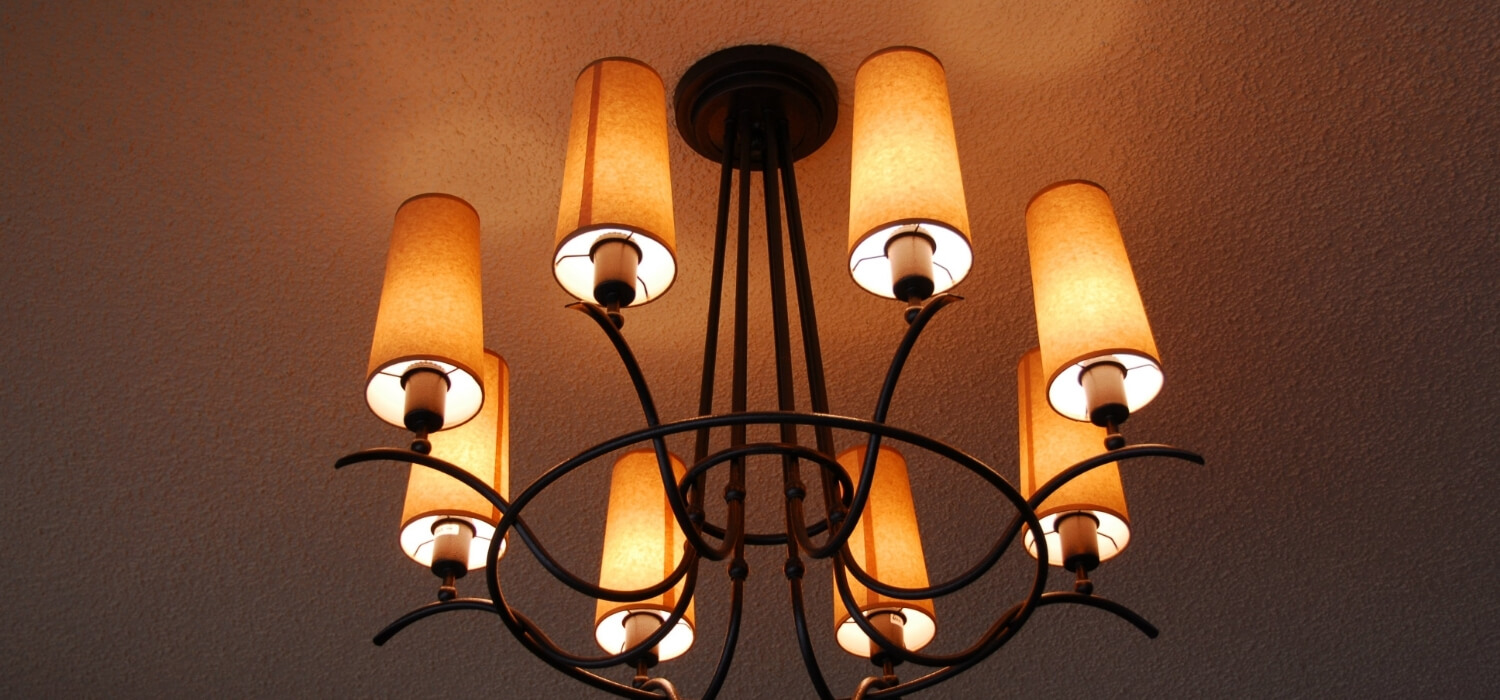
Flickering lights are a common electrical problem in old homes as your connection can loosen over time. If there is a bad connection between your light and its switch, then this often causes flickering.
You can check this connection by wiggling the switch or turning it slowly on and off. If this makes the bulb flicker then there may be a loose connection between the two.
In that case, you will need to replace the switch itself. You should get help doing this unless you have proper electrical training. The last thing you want to do is make the situation worse!
Voltage Drops and Fluctuation
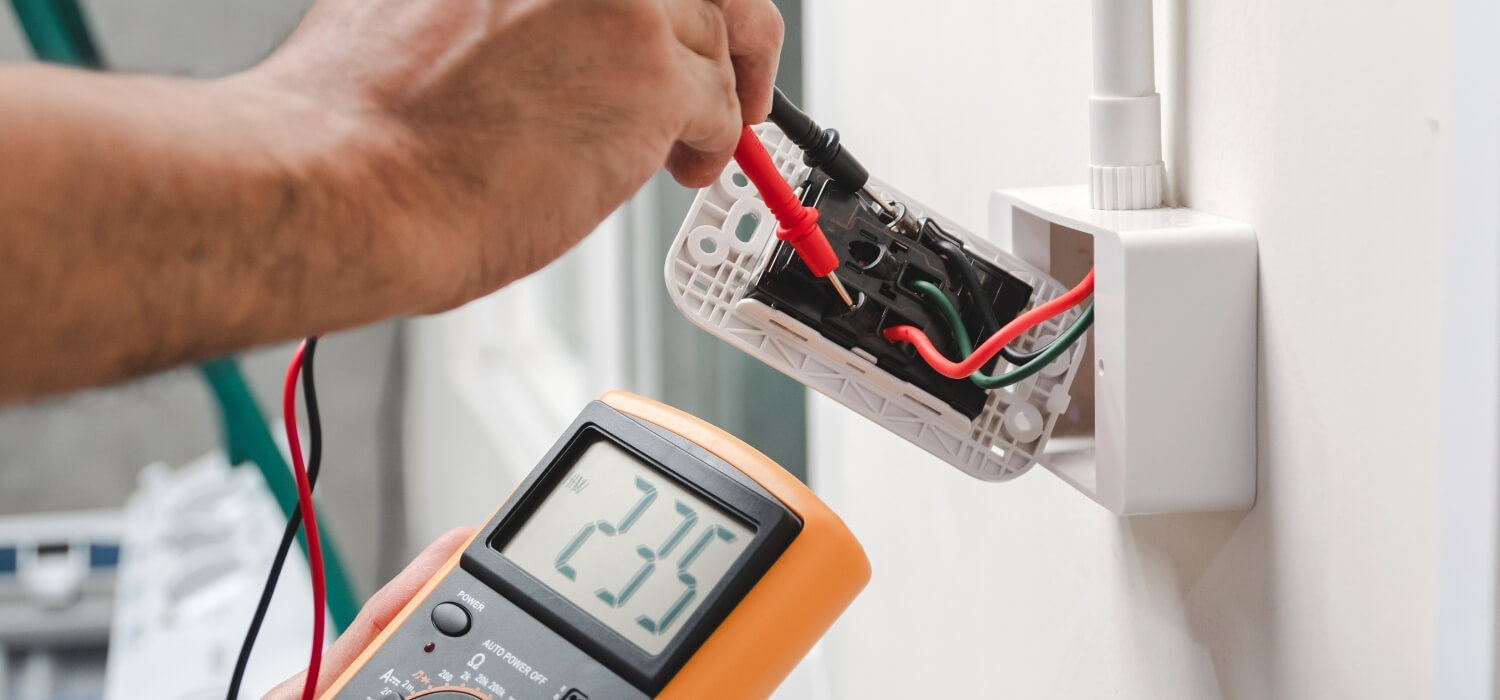
You may notice that there is a pattern in your light’s flickering. This often happens when the voltage in your lightbulbs fluctuates or drops out suddenly.
Signs that you may have a voltage fluctuation problem in your house include:
- Lights flickering shortly after you turn on another electrical appliance (often one that uses a lot of power)
- The light flickering continues for a time after you have turned the appliance off (until the voltage can build back up in the lightbulb)
- Your lights dim unpredictably or in a way that you don’t expect
- Your lights burn out a lot
These second two signs suggest that there is another cause of your voltage problems somewhere in your home.
You can use a voltmeter to check the voltage in your home. Your voltage may fluctuate slightly but it should always sit between 115 and 125 volts. If you register a voltage of more than 125 volts then this is almost certainly the reason why your lights are flickering.
In that case, you should speak to an electrician to get to the bottom of the problem.
Shared Neighborhood Transformers
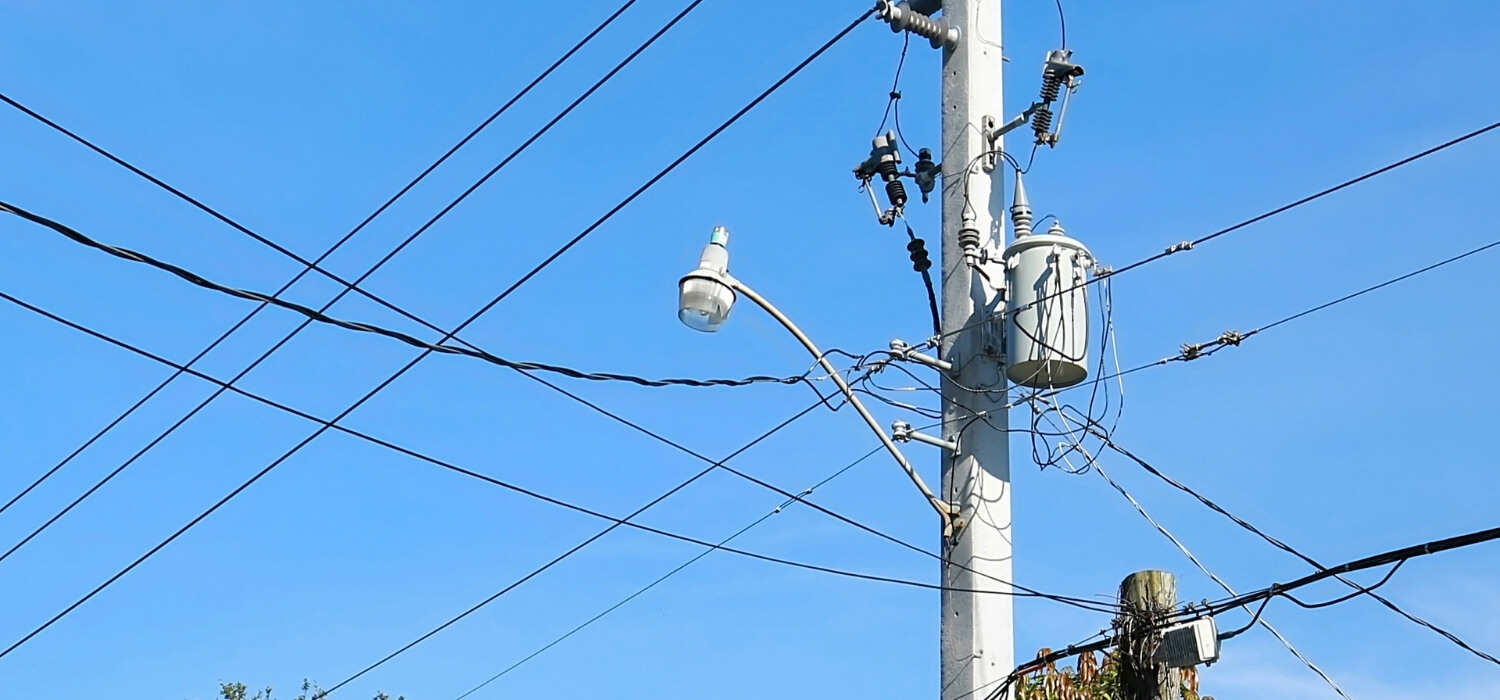
A lot of neighborhoods share electricity transformers. These transfer electricity into your home from the high voltage power company.
However, sharing a transformer means that your neighbors’ energy usage can have an impact on the electricity in your home. If they are using large amounts of electricity this may cause the voltage in your home to drop. As a result of this, your lights will flicker.
If this happens to you, try asking your neighbors if they’ve experienced similar issues. If they have there may be an issue with the transformer itself. In that case, you should report it to the electricity company for repair as soon as possible.
Loose and Outdated Wiring
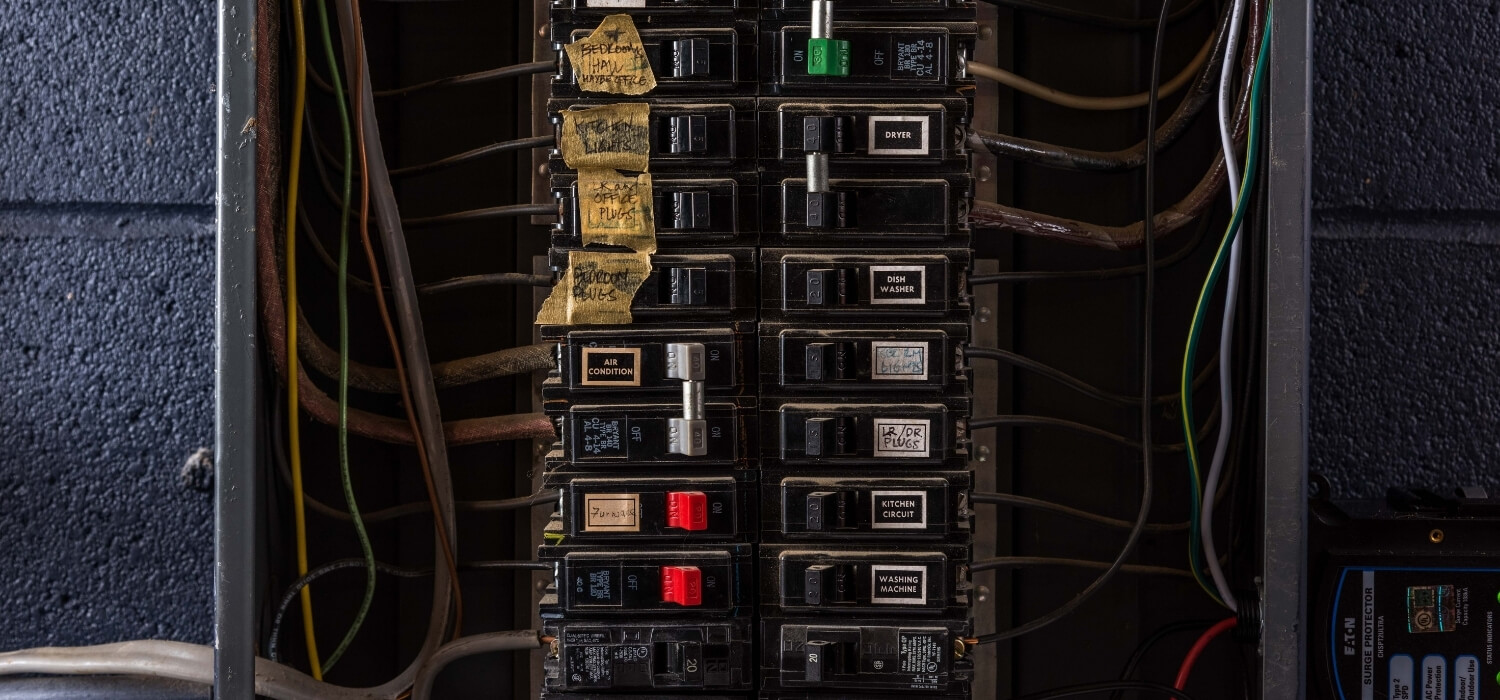
Loose wiring in your home can be a major health and safety issue as well as making your lights flicker. This affects how well the electrical circuits in your home carries electricity around it.
Any faults in the wiring, connectors, switches, or breakers leave gaps in the circuit. As the electricity tries to jump these gaps, it results in an inconsistent current running through the circuit itself. Each time this happens, your light will flicker.
Because of this, loose wiring often results in lights that flicker consistently, rather than at specific times. Either way, you should get the problem seen to as soon as possible.
When electricity jumps from one wire to another it can catch on the material around it, such as wall insulation. On top of this, loose wiring overheats very easily as the electricity struggles to pass along it. When this happens, it can start a fire very easily putting you and anyone who lives with you at serious risk.
This is a common problem in older homes where the wiring is outdated or has become looser with age. That said, poor electrical installations can also result in loose wiring.
If your lights start flickering without any obvious cause, it may be that the wiring has come loose in your home. When this happens, make sure to shut off the electricity supply to the light at the circuit breaker. It’s a good idea to never DIY electrical repairs, but rather get help from an expert when checking and rewiring any of your electrics.
Problems With Your Main Cable and Meter Box

As we have already mentioned, the electricity supply to your home comes in via a transformer. This is usually located near your house and, if something goes wrong with yours this may result in variable voltage throughout your home.
However, if the main cable connecting your home to the transformer gets damaged, then this can also result in flickering lights. This usually happens if construction work has happened in the area that may have disrupted your cable.
In that case, it’s worth asking the neighbors if they’ve experienced any disturbances. If they haven’t, then the issue is probably with your cable and not the transformer itself.
If any work has gone on nearby, you should contact the construction company to find out exactly where it took place. This will help you to figure out if they have disturbed your cables or not.
Getting the main cable repairs is definitely a job for the experts. But if someone has accidentally damaged yours then it should be up to them to replace it and foot the bill!
Overloaded Circuits
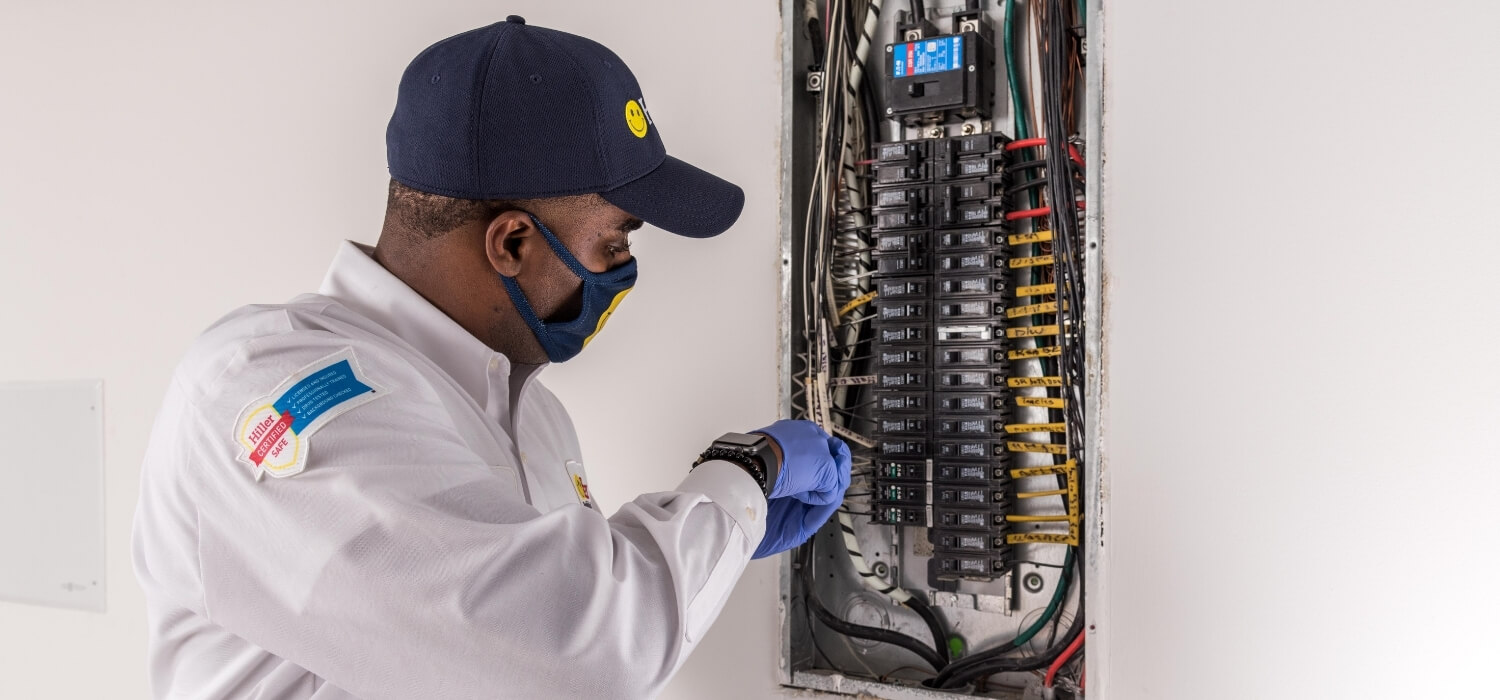
The electrical circuits in our homes are used to dealing with a lot of power. After all, we use electricity daily for a whole range of activities. But sometimes it is possible to demand too much of your home’s circuits.
For example, if you have a lot of appliances running or a few large appliances running, this requires a lot of power from your home’s circuits. When this happens, you may notice that your lights start flickering. This is because the voltage in your home’s circuit has been redirected to a larger appliance, causing the lights to dim.
If this is minor and doesn’t happen a lot, then there’s no need to be too worried. Appliances like washing machines and air conditioning units, in particular, draw a lot of power. If you don’t run them a lot, then it is fairly normal to notice when you turn them on.
However, the flickering should stop once your appliance has been running for a little while. If this does not happen and it becomes consistent or severe, then this indicates a more serious problem.
It might be that the appliance you are using has a fault, for example, which means it is pulling more electricity than necessary. Or it might be that one area of your electrical circuit is unable to handle the demands on it.
Whatever the reason, an electrician will be able to help to find and fix the problem.
What to Do if Your Lights Keep Flickering

Ok, so if you’ve been wondering “why are my lights flickering?” you’ll probably have a better idea now. But what should you do once you realize something is wrong with your lights?
Getting your lights checked a repaired as soon as possible is extremely important. Flickering lights are annoying but faulty electrics also cause more than 44,000 house fires every year in the United States! This is why you should get help as soon as you identify any signs of electric faults in your home.
You can do simple tests, such as checking your bulbs, on your own. However, you should remember to shut off the electricity to your circuit before you do this.
If the problem is more extensive than a loose bulb or plug, it is a good idea to get help from a professional. They will be able to fix the problem properly and safely.
Trying to repair your electricity without any professional training is extremely dangerous. You may get hurt while working on the electric circuit or you may not do a thorough repair job. This means that the electrics in your home won’t be safe to use until a professional has looked at them.
Get Help With Your Flickering Lights Today
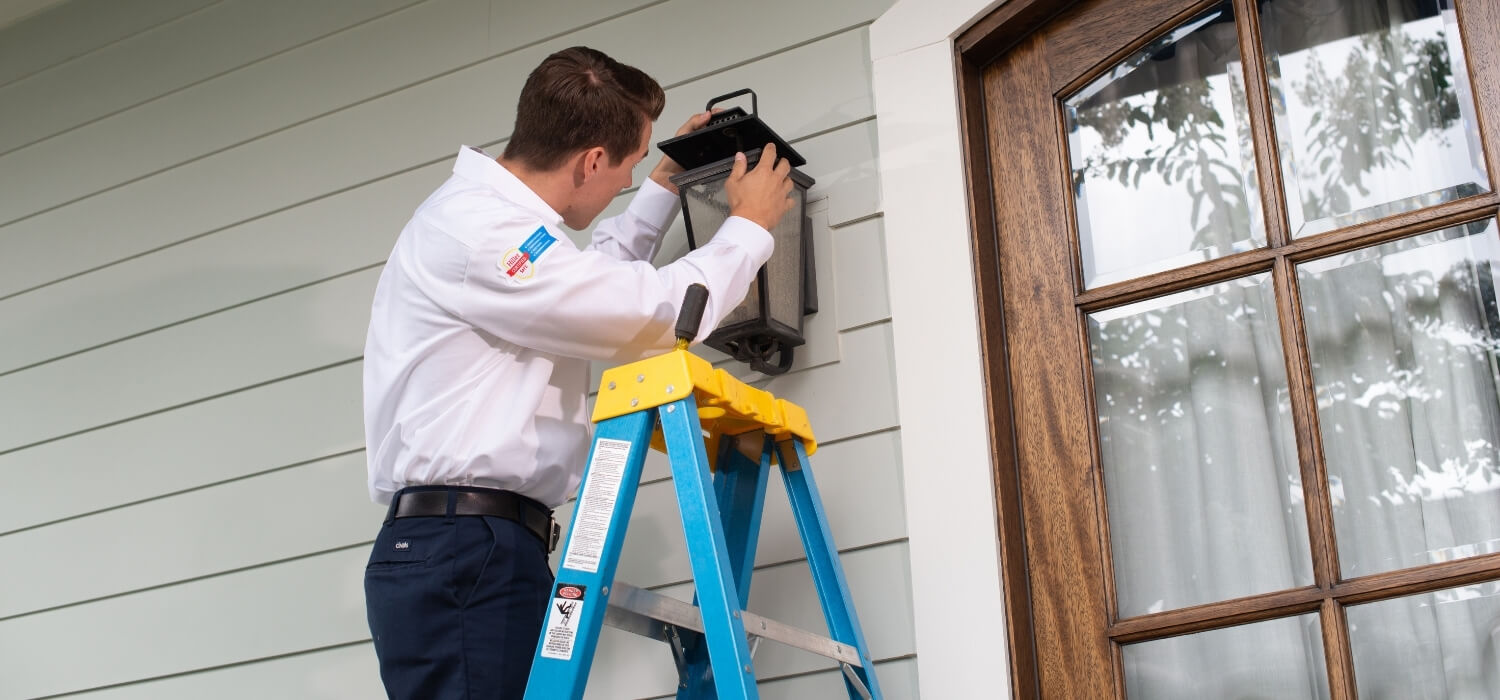
As you can see, there are plenty of reasons why your lights keep flickering—some minor and others require more attention. The most important thing is not to ignore a flickering light or the issue could escalate!
If you are concerned about the lights in your home, then make an appointment with our expert electrical team today. We’re happy to help!
 Daily Promotion
Daily Promotion
$500 Off Tankless Water Heater
Upgrade your comfort and give back this season.
Get Promotion